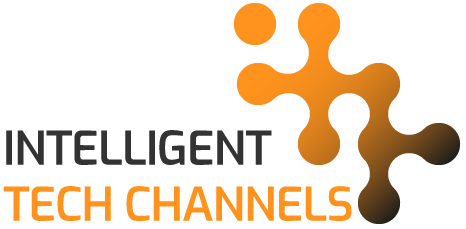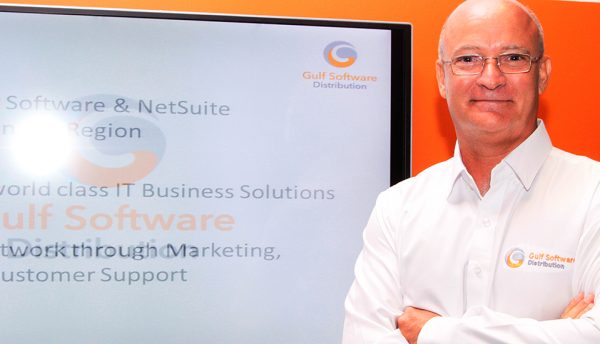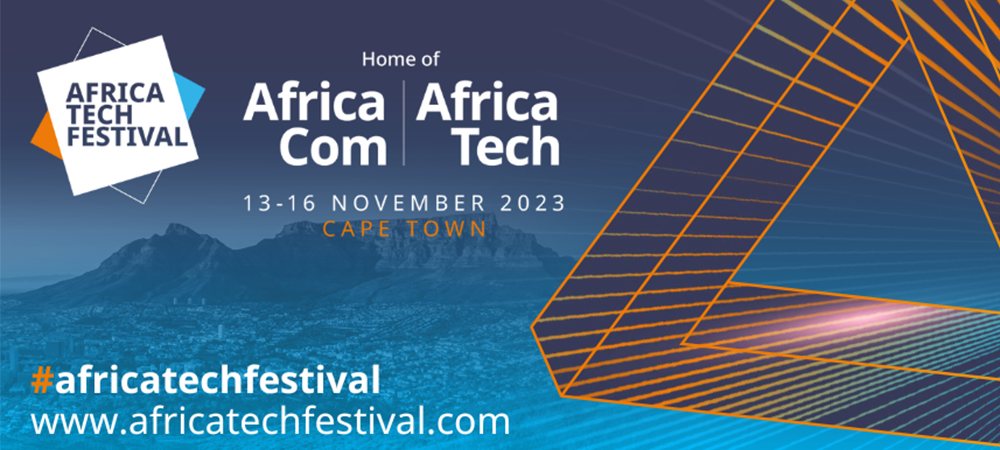Gulf Business Machines and Gulf Software Distribution are listed as distributors for IBM in the UAE. While Gulf Business Machines is a system integrator and distributor for IBM hardware, the role of Gulf Software Distribution is to increasingly sell out the IBM software suite into UAE, Qatar, Kuwait, Oman, and Bahrain. Another gap in the market coverage of Gulf Business Machines has been its focus on the high-end enterprise. Gulf Software Distribution plans to cover this opportunity by targeting the middle size enterprise business.
“The main objective is to be able to reach the markets for IBM software where GBM is not so active,” says Philippe de Mazières, General Manager of Gulf Software Distribution. Another mandate for IBM’s recent software distributor is to find business partners that are capable of reselling IBM software in the market where GBM is not so active.
Mazières points out that the IBM software portfolio is huge and this puts pressure on Gulf Software Distribution to focus on specific solutions for the regional market. “We need to be focusing on where we have good competencies and where the market is also ready to go,” he explains. Mazières sees an increasing demand for analytics in the regional market.
So, Gulf Software Distribution’s first go to market pillar from the IBM software portfolio, includes the full spectrum from original analytics, predictive analytics, cognitive analytics to the Watson offering. Another component from the IBM software portfolio that has good traction in the regional markets is IBM’s middleware. IBM has historically been strong in this area for building enterprise application platforms and integrating solutions, and this is the second pillar of Gulf Software Distribution’s go to market. Mazières also points to the demand and rapid growth of security products in the region, which builds the third pillar of Gulf Software Distribution’s go to market in select countries of the region.
In addition to analytics, middleware, and security, Gulf Software Distribution will also include IBM’s cloud, Big Data, and IoT offerings, to complement the three primary pillars. “So, a vast majority of the IBM portfolio is covered here and this is what we are bringing to the market with our business partners.” However, Mazières rules out the inclusion of hardware and box pushing as part of Gulf Software Distribution’s future activities. As a value-added distributor, it is focused on high value, complex solutions built primarily around the IBM software portfolio.

“I do not do hardware. I just do software and we are focusing on where we are good at. We are focusing on the software proposition, which brings value for the market. I am not here to push boxes and to do quantity. I am here to do something which is really a high value proposition with business partners,” is how Mazières describes the IBM software game plan for the distributor.
Another important aspect of Gulf Software Distribution’s go to market strategy is its ramp-up plan. As an IBM value added distributor, the mandate of Gulf Software Distribution is to buy from IBM. Its mandate is also to find and enable business partners, to operate in the high value business and not mass market. After completing a year of operations, a key priority in its channel partner enablement approach is to select partners based on their technology competency. This includes competency in analytics, middleware, and security.
Once these operations have been stabilised, Mazières intends to look at channel partner enablement based on their vertical market competency as well. “For the time being we are involving partners according to their competencies on what software they are capable of selling, because I think this is the fastest route.”
Other than IBM as a vendor partner, both Gulf Business Machines and Gulf Software Distribution are channel partners for Dassault Systems, vendor for 3D Experience and Catia 3D modelling software. Gulf Software Distribution is also a distributor for ERP cloud vendor Oracle NetSuite. Does the cloud ERP suite from Oracle NetSuite conflict with IBM’s cloud suite? “It is an ERP, and IBM does not have an ERP system,” clarifies Mazières.
On the contrary, Mazières believes that for its channel partners Oracle NetSuite is a complementary offering to IBM’s Saas cloud stack. “Oracle NetSuite is a leading ERP in the Cloud. And it is only in the cloud. We are really into that market as well, on-premises and on cloud. We see a nice merge as well, wherever we are.”
By increasing its portfolio of non-competing, complementing vendor partners, Gulf Software Distribution also intends to address markets with its channel partners where Gulf Business Machines has not been active.

Gulf Software Distribution is putting in a lot of effort to enable its channel partners to begin their cloud journey with the end customer. Currently channel partners are mostly selling on-site licensing but there is a gradual movement to the cloud. Data privacy legislation needs to be put in place to define which data needs to be saved in-country and which can be saved in the cloud, similar to European and US regulations, before broad based, regional Saas cloud adoption can take place. To move forward end-customers will need to take the initiative in data legislation and data privacy compliance.
Mazières believes channel partners need to get started down this road as well. “Partners have to start. This is our goal as well to enable the partners to adopt that model. This is the enablement that we are bringing to the market today.”
Currently cloud licensing sales are limited because channel partners are challenged by the financials of pay-as-you-go versus the traditional perpetual licensing or upfront annual licensing payment. But for channel partners who are deeply embedded with their end-customers this is an opportunity to move to the next generation of software licensing. In the long term, cloud based licensing will be more lucrative than upfront perpetual licensing because of the significantly higher volumes of automatic licensing renewals.
“The cloud model is completely different from the on-premises model. The cloud model is more on the long-term. This is another model of financing and channel partners understand that on the long-term they will make probably more money than what they are doing today,” he explains optimistically. “This works for IBM and for the business partners who have the competency.”
IBM’s software suite works across both on-premises and in the cloud seamlessly and provides one view of the system. For an end-customer using an IBM solution, the software could be on-premises or on the cloud. The only difference is where the data is residing for the end-customer and it could be partly in the cloud and partly on-premises, if required.

Whether it is analytics, middleware or security, Gulf Software Distribution is enabling its channel partners to offer their end-customers the choice of a hybrid approach, in addition to on-site and pure cloud Saas, since that is what IBM does best. Mazières points out that the end customer does not need to worry about the hybrid cloud integration. “This is a unique value of IBM.”
“These are not box moving projects,” he continues. This requires a business partner with a proper level of education and this is where we are helping them.”
Channel partners who are ready to begin a hybrid cloud journey with their end-customers need to be educated and certified. Gulf Software Distribution is training and enabling its channel partners to get certified to begin the cloud journey with their end-customers. They can also use skilled resources from IBM and Gulf Business Machines to support the enablement of their channel partners. “My mandate is to recruit partners and to enable them properly so they can be selling these complex solutions to the market.”
Other than the challenges of cloud partner enablement, cloud partner certification, and up-skilling, does Gulf Software Distribution face any other challenges in today’s regional marketplace? There is at least one other area that a software value added distributor can face an uphill task and this is in financing. Unlike hardware and similar capital assets, software is intangible and cannot be automatically depreciated. Hence, it is not an easy purchase to be financially leased.
“The hardware business in terms of financing is different from the software business, completely different. You cannot make a parallel between hardware financing and software financing, because there are no assets.” However, for the current ecosystem of 50+ channel partners, Mazières has always been able to find a financial solution, when there is a face to face discussion to close the deal. “We always find a solution with our partners who are looking for deferring some payments.”
If Mazières was given a million dollars to invest into Gulf Software Distribution, where would he put it. “I would invest it in people because our value proposition is complex solutions.” The solutions from IBM, Oracle NetSuite and Dassault Systems are complex implementation solutions, for which partners need to be educated, trained and certified. Suitable investment in such enablement can only help channel partners gain their market share.

Key takeaways
- A key priority in channel partner enablement is to select partners based on their technology competency
- A vast majority of the IBM portfolio is covered and this is what we are bringing to the market with our business partners
- Another mandate is to find business partners capable of reselling IBM software in markets where GBM is not so active
- As a value-added distributor it is focused on high value, complex solutions built around IBM software
- As an IBM value added distributor the mandate of Gulf Software Distribution is to buy from IBM
- By increasing portfolio of non-competing vendor partners, it intends to address markets where Gulf Business Machines has not been active
- Channel partners who are ready to begin a hybrid cloud journey with their end-customers need to be educated and certified.
- Cloud is another model of financing and partners understand on long-term they will probably make more money than they are doing today
- Cloud model is more long-term
- Hardware business in terms of financing is different from software business
- I am here to do something which is really a high value proposition with business partners
- I am not here to push boxes and to do quantity
- I just do software and we are focusing on where we are good
- In addition to analytics, middleware, and security, Gulf Software Distribution will also include IBM’s cloud, Big Data, IoT
- Main objective is to be able to reach markets for IBM software where GBM is not so active
- Mandate is to find and enable business partners and to operate in the high value business and not mass market
- My mandate is to recruit partners and to enable them properly so they can be selling complex solutions to the market
- Solutions from IBM, Oracle NetSuite, Dassault Systems are complex implementation solutions
- The cloud model is completely different from the on-premises model
- This works for IBM and for the business partners who have the competency
- We are involving partners according to their competencies on what software they are capable of selling, I think this is the fastest route
- We need to be focusing on where we have good competencies and where the market is also ready to go
- You cannot make a parallel between hardware financing and software financing because there are no assets
Vendor partner solutions
Oracle NetSuite global business unit and wholly-owned subsidiary of Oracle, is the world’s most deployed cloud Enterprise Resource Planning solution, used by more than 40,000 organisations across 160+ countries. Oracle NetSuite Enterprise Resource Planning offers a modern, scalable solution to run back-office operations and financial business processes in the cloud.
Key partner categories: Solution Providers, Alliance Partner Program, Developers, BPO Partner Program, Referral Partners, Accountants, Commerce Agency Programme.
Key product groups: Enterprise Resource Planning, Global Business Management, OneWorld, Customer Relationship Management, NetSuite Professional Services Automation, NetSuite OpenAir, Omnichannel Commerce, SuiteCommerce, Business Intelligence, Experience.
Key products: NetSuite, NetSuite Advanced Inventory, NetSuite Advanced Manufacturing, NetSuite Advanced Order Management, NetSuite Commerce Response Services, NetSuite CRM Plus, NetSuite Customer Success Management, NetSuite Data Center Fact Sheet, NetSuite Datacenter Premium Tiers, NetSuite Demand Planning, NetSuite Electronic Payments, NetSuite ERP, NetSuite Fixed Asset Management, NetSuite Financial Planning, NetSuite Financial Planning—Visual Analytics, NetSuite for Advertising and Digital Marketing Agencies, NetSuite for Ad Tech Companies, NetSuite for Manufacturers, NetSuite for Media Companies, NetSuite for Nonprofit Organizations, NetSuite for Retail, NetSuite for Wholesale Distributors, NetSuite Incentive Management, NetSuite Manufacturing Execution, NetSuite Multi-Book Accounting, NetSuite OpenAir, NetSuite OpenAir Data Center, NetSuite OpenAir Resource Management, NetSuite OneWorld, NetSuite OneWorld – Nonprofit, NetSuite Order Management, NetSuite POS, NetSuite Premier Payroll, NetSuite Private Equity Services Practice, NetSuite Procurement, NetSuite Product Data Management, NetSuite Production Scheduling, NetSuite Project Costing, NetSuite Project Management, NetSuite Quality Management Solution, NetSuite Recurring Revenue Management, NetSuite Revenue Recognition, NetSuite Software Company Edition, NetSuite Services Resource Planning, NetSuite SuitePayments: Credit Card Acceptance with NetSuite, NetSuite SuiteSupport, NetSuite Value Assessment, NetSuite WIP and Routings, NetSuite WMS, NetSuite Work Orders and Assemblies, NetSuite.org for Nonprofits and Social Enterprises, Pathway to Successful Growth for Software Companies, Premium Sandbox, SuiteCloud Platform—Development Tools, SuiteCommerce, SuiteCommerce Advanced, SuiteCommerce Customer Center, SuiteCommerce InStore, SuiteCommerce Site Builder.
IBM
IBM security solutions fall under three principal heads: security transformation services, security operations and response, information risk and protection. There are multiple sub categories including Advanced fraud protection, Application Security, Cloud security, Cognitive security, Command centers, Data privacy, Data protection, Data Security, Endpoint security, IBM X-Force Incident Response and Intelligence Services, IBM X-Force Red Offensive Security Testing Services, Identity and Access Management, Incident response, Infrastructure and Endpoint Security, Mobile security, Network protection, Security intelligence and analytics, Security Intelligence and Operations, Security leadership, Security services, Security Strategy, Risk and Compliance.
Some of the key IBM security products include: IBM QRadar Network Security, IBM QRadar Security Intelligence Platform, IBM BigFix Endpoint Protection, IBM X-Force Exchange, IBM Resilient Incident Response Platform, IBM i2 Enterprise Insight Analysis, IBM Security App Exchange, IBM X-Force Incident Response and Intelligence Services, IBM Cloud Security, IBM MaaS360, IBM Identity and Access Management, IBM Guardium, IBM AppScan, IBM Trusteer.
https://youtu.be/9xbRfXLXEp0
https://youtu.be/sHrgVqKW1RQ
IBM analytics solutions fall under the follow sub categories: Analytics and data management, Business Analytics, Cloud data services, Data and Information Governance, Data Science, Enterprise content management, Hadoop and Spark, Hybrid Database and Warehouses, IBM Analytics partnerships, Line of business. Some of the key products include: SPSS, Predictive analytics; IBM DB2, Database; Cognos Analytics on Cloud, Business Intelligence; IBM BigInsights, Hadoop; IBM Planning Analytics, Financial Performance Management; IBM Machine Learning, IBM Analytics, Watson Marketing, Watson Commerce, Watson Supply Chain, Watson Customer Engagement.
Some of the key IBM application platform solutions include: Application deployment, Application server, Create APIs, Java runtime, Node.js, Transaction processing, Networking services in Bluemix, IBM Cloud Storage Solutions, IBM DevOps.
Some of the key IBM cloud integration solutions include: IBM API Connect, IBM App Connect Professional, IBM DataPower Gateway, IBM Integration Bus on Cloud, IBM MQ, Digital economy consultation, IBM Cloud Orchestrator, IBM Cloud Automation Manager, IBM Cloud Automation Manager on IBM Bluemix, Power of cognitive with Watson.
https://youtu.be/_Xcmh1LQB9I
The vendor provides 3D applications for modelling, simulation, social and collaboration, information intelligence, real time experience. This provides business and people with virtual universes to imagine sustainable innovations. The applications include 3D Experience, Catia, Solidworks, Enovia, Delmia, Simulia, Geovia, Exalead, 3D Via, Biovia, Netvibes, 3D Excite. The target markets are Aerospace and Defense; Architecture, Engineering and Construction; Consumer Goods and Retail; Consumer Packaged Goods and Retail; Energy, Process and Utilities; Financial and Business Services; High-Tech; Industrial Equipment; Life Sciences; Natural Resources; Transportation and Mobility; Marine and Offshore.
Click below to share this article






